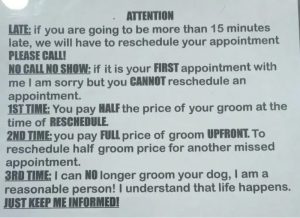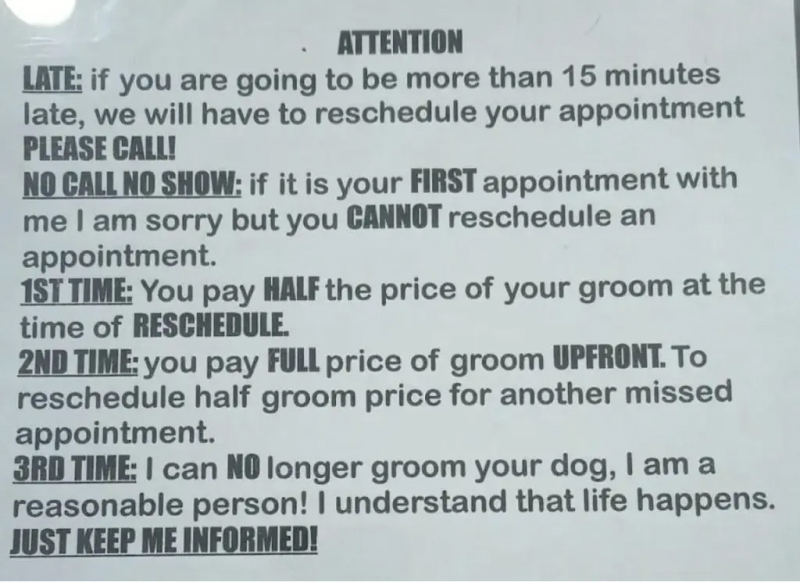A nanny can be a full-time or part-time child care provider employed on a live-in or live-out basis. They are responsible for caring for children within an unsupervised setting. As a result, a household employer should strive to hire a great nanny who can get along with their children while they are away at work. Hiring a good nanny can be difficult, but this article will make the process easier. Read on for tips on how to hire a nanny.
What a Nanny Should not do?

Nannies can become part of your family after living with your family members for some time. However, establishing such a solid relationship requires careful consideration. You can set up rules with your au pair, and they will get accomplished with your schedule and focus on meeting your family’s needs. There are various things a nanny shouldn’t do, as we shall see below.
- A nanny shouldn’t create household rules. Instead, they should adhere to the set rules.
- They should prepare nutritious and healthy meals for the children and not take them out for lunch.
- They should come to work at the agreed-upon time and not when it’s convenient for them.
- A nanny should engage kids in physical activities instead of setting them infront of the TV all day long.
- Suppose your nanny has a driver’s license and transporting the kids from one place to another is part of her job description; they should desist from using their phones while driving.
- A great nanny should never leave kids unsupervised
Assessing Childcare Skills
Assessing a potential nanny’s childcare skills is a crucial step in the hiring process, as it directly impacts the well-being and development of your children. During the interview and trial period, keen observation is essential. Pay attention to how the nanny interacts with your children – does she engage them warmly and attentively? Assess her ability to handle various situations, such as calming a fussy baby or handling minor disagreements among siblings. Look for problem-solving skills, as well as the ability to respond calmly and effectively in emergencies.
A good nanny should exhibit nurturing qualities, creating a supportive and caring environment for your children. Additionally, observe how she implements discipline when necessary, ensuring it aligns with your family’s values and parenting style. Ultimately, assessing childcare skills goes beyond just qualifications; it involves evaluating the nanny’s natural aptitude, empathy, and emotional intelligence, which will contribute to a harmonious and nurturing relationship between the caregiver and your little ones.
What Should You Charge as a Nanny?
Knowing what to charge for your services can be a struggle if you are a babysitter or a nanny. Some studies suggest that the minimum hourly rate for babysitters in the US is $17.50 and $19.50 for nannies. However, these rates can vary based on where you work and live, the minimum wage laws in your state, and the cost of living within your area.
What Should You Know About a Nanny’s Background?
To conduct a comprehensive background history analysis of a potential nanny, you want to evaluate their background from various angles. An extensive candidate’s history analysis comprises the following factors.
· Identify Verification
Many public record data is filed according to an individual’s name, meaning that sexual predators and criminal offenders can hide using an alias. However, household employers can verify a potential nanny’s identity by using tools that leverage their social security number. The number can verify names and aliases affiliated with the SSN.
· Criminal Records
Many parents consider criminal records when vetting prospective nannies. Parents need to know upfront if a nanny has a history of drug crimes, violence, theft, or reckless behavior that can expose the kid and their families to risk. Conducting a criminal background check can help you establish this information.
· Driving Records
Sometimes nannies will have to drop and pick up children from school. In this case, include a driving record search in your vetting process. Any red flag on the motor vehicle or driving record could indicate the need to restart your search.
· Reference Check
Previous employees understand a specific nanny’s work, personality traits, and ability to bond with kids. As a result, they are better placed to give you authentic information about what to expect. Always ask a potential nanny to provide reliable references who you can consult.
What Should a Nanny Wear?
Unlike in various professions where employees dress up in suits and ties, nannies’ jobs require them to remain active with the kids throughout the day. Some employers prefer uniforms for their nannies. If your employer has no laid down dressing rules, here are some tips you can rely on to dress professionally and still feel comfortable.
· Wear Comfortable Shoes
High heels are not ideal for you as a nanny. Invest in comfortable pairs of shoes that you can wear throughout the day and still match the children’s energy. Consider pretty flats for playdates and running errands or sneakers when visiting the park. Slip-on loafers can be ideal when spending the day indoors.
· Invest in Denim
Denim is a great option that nannies can dress up or down, depending on the occasion. For example, a nanny can dress up in denim and a t-shirt during a casual outing at the park.
· Sweatshirts and Yoga Pants
Yoga pants and sweatshirts are comfortable, so nannies can be tempted to adopt them as the go-to style. However, it’s not the most professional. Wear this style in moderation.
· Avoid Dangly Jewelry
The perfect jewelry can improve the appearance of an otherwise boring outfit. However, some jewelry types are not ideal for you as a nanny; remember, small kids will be grabbing your dangly jewelry like necklaces, bracelets, and earrings, harming you or damaging your treasured pieces. Choose kid-friendly jewelry or forgo the same altogether.
What is a Nanny’s Day Like?

A nanny’s daily routine differs based on their job description. For example, live-in nannies stay at the employer’s premises while day nannies live in their homes and come to work daily. Some employers can employ night nannies as part of backup care to help parents get their deserved sleep and relaxation.
The daily schedule will also vary depending on the number and age of the children they are taking care of. Here is a general example of a nanny’s day-to-day schedule.
· In the Morning
A live out and live in nanny’s day starts early. They are tasked with waking kids up, feeding them, and preparing them for the day. If the children are within school-going age, a nanny will pack their school bag and lunch box and drop them at school.
· During the Day
For non-school-going children, a nanny’s day includes dividing their time between nursing, teaching, playing, quiet time, and napping. You can leverage downtime to tidy the kid’s rooms, wash or iron their clothes, and prepare their meals.
· In the Evening
If you are taking care of school-going children, you will need to pick them up and assist them with their homework. Set aside time for play, bathing, and dinner. If their parents leave work early, they will spend some time with them before retiring. You can take that opportunity to clean up and return home if you live out or retire to bed if you are a live-in nanny.
Should you be the Nanny’s Supervisor?
Often, nanny employers struggle with creating and balancing a professional and personal relationship with their nannies. However, as a parent, you need to prioritize your working relationship by actively supervising your nanny and ensuring that they execute their tasks accordingly. Here are tips to help you achieve this.
· Have Clear Expectations
When you employ a new nanny, outline your expectations of them and define their duties. Create a comprehensive written work agreement complete with their job description, home pay, and salary raise regulations. As the nanny starts work, reiterate how you want them to execute their duties to avoid unnecessary conflict.
· Encourage Honest and Open Communication
Over time, your nanny will become your parenting partner. Discuss your parenting style and highlight things you are comfortable with and what you don’t condone. Welcome your nanny’s suggestions and feedback and encourage her to contribute to your parental goal-setting venture.
· Maintain Professionalism
While your nanny is highly likely to build a deep connection with your kids that remains her job, and maintaining professionalism between the employer and employee is crucial. Keep your part of the bargain and ensure she does so too. For example, you should pay her on time and according to the law, and she should show up at work at the agreed-upon time.
· Invest in Your Relationship
Hold regular meetings during which you can discuss her performance, the job in general, and whether she is happy in her position. Welcome suggestions that can help her execute her tasks better. Do not forget to comment on her for everything the nanny does well and let them know areas they can improve on. Your nanny is important in your life, and they also influence your children every day. Supervise them well to ensure they meet your caregiving expectations accordingly.
How to Hire a Nanny

Hiring the right nanny for your kids can be a daunting task, explaining why some families send their children to daycare facilities instead. However, if you are looking for a personalized experience for your children, going through the hiring process is inevitable. Here are crucial tips to help you navigate with ease.
· Write a Job Description
Before you start your search for a full-time nanny, consider what you deem important for your family and write your needs in the form of a job posting. Include the years of experience a potential nanny should have and mention whether or not you will place them under a trial period.
Are you looking for someone with a certificate in early childhood education or first aid? Is being multilingual a crucial factor? How many sick days is your household employee entitled to? Will you need them to drop and pick up the kids or even go grocery shopping? Include non-child care-based tasks in the job description as well.
· Identify Candidates
Many nannies and families connect through nanny agencies, networking, or online job boards like care.com. Finding the perfect nanny can take time. To beat the high demand for top nannies, you must act fast but carefully to get the best individual for your kids.
· Schedule an Interview
After narrowing down your list of nanny candidates, organize interviews better to understand their caregiving style, personalities, and expectations. Basic interview processes involve multiple steps, which are:
- Review the potential nanny’s resume on a job board or acquire their background information from a nanny agency to establish whether they meet your minimum expectations.
- Run a screening interview through Skype or phone to establish their interest level in the job. Here, you need to ask crucial interview questions to determine whether they are a good fit for the nanny job.
- Meet the candidate in person and study them in the absence of the children.
- Introduce the prospective nanny to your children in a stress-free and neutral environment and observe how they interact.
Remember, were are living in an overly busy world, and scheduling nanny appointments or interviews can be a time-intensive activity. However, you can do so with ease by adopting calendar booking software. The system helps you schedule and coordinate meetings with multiple nannies or sitters from anywhere with ease.
· Run a Background Check
To do a legal background check, you must be an employer, complete with an employer identification number. Remember, background checks are different. As a result, you will need to research widely and pay for an extensive background check. Once satisfied, call the nanny’s references for an upfront review from previous employers.
· Prepare for your Nanny’s First Day
Before your new nanny starts working, consider reviewing the nanny contract together to ensure each party is satisfied.
· Register with a Payroll Service
When you hire a nanny, you become an employer and must pay nanny taxes and expand your insurance coverage to incorporate a domestic worker.
· Paying Your Nanny
As an employer, you pay your nanny based on their salary requirements, your budget, the number of children they will be caring for, and job duties. The nanny and the employer should calculate the salary in advance and include other details like paid time off, overtime, health care, annual raises, bonuses, transportation costs, and taxes.
To employ a nanny legally, an employer should fill in the SS-4 form and forward it to the (Internal Revenue Service) IRS. They should also get an EIN (employer identification number), which comes in handy when filing for quarterly or annual reporting.
You will also need to calculate net pay and payroll withholdings. Household employees whose salary is no less than $2,200 should have their taxes deducted and paid to the IRS. A detailed report of the earnings should also be forwarded to Social Security.
The Interview Process
The interview process is a crucial step in this journey, allowing you to evaluate candidates beyond their resumes and references. It’s a chance to understand their philosophy, observe their interactions, and assess their compatibility with your family’s values and routines.
Preparing for the Interview
Before the interview, review each candidate’s qualifications and experiences. Craft a list of questions that encompass various aspects of childcare, from their skills and expertise to their approach to handling challenges. Be prepared to adapt the questions based on their responses and the direction the conversation takes.
Categories of Questions
· Qualifications and Experience
Start by delving into their background. Ask about their previous nanny roles, the age groups they’ve worked with, and any relevant certifications they hold. Understanding their experience sets the foundation for further discussions.
· Child Care Philosophy
Explore their childcare philosophy and values. Pose questions about how they approach discipline, their views on early childhood education, and the types of activities they enjoy to foster developmental growth.
· Problem-Solving Scenarios
Present hypothetical situations to gauge their problem-solving skills. Inquire about how they would handle conflicts between children, manage a child’s refusal to eat, or respond to minor accidents.
· Compatibility and Interpersonal Skills
Assess their compatibility with your family’s dynamics. Inquire about their communication style with both children and parents. Ask for instances when they’ve adapted to specific family routines or rules.
During the Interview
As you proceed with the interview, pay attention not only to their verbal responses but also to their non-verbal cues. Actively listen to their answers and observe their engagement. If possible, involve your child in the interaction, allowing you to witness firsthand how the nanny interacts with them.
· Candidate’s Questions
Encourage candidates to ask questions about your family and expectations. Their curiosity demonstrates their interest in understanding your needs and how they can contribute to a harmonious household.
· Trust Your Instincts
The interview process isn’t just about gathering information; it’s also about forming an impression. Listen to your instincts as you assess whether a candidate aligns with your family’s values and needs. A combination of their responses, your observations, and your overall gut feeling will guide you towards making the right decision.
Examples of Nanny Interview Questions

Here are some essential nanny interview questions to help you find the perfect caregiver for your children:
1. Can you tell me about your childcare experience?
This question allows the nanny to provide an overview of their background and expertise in caring for children. Look for candidates with relevant experience.
2. What drew you to this profession, and why do you enjoy working with children?
Understanding the nanny’s motivations and passion for childcare can reveal their commitment and dedication to the role.
3. How do you handle discipline and behavior management?
It’s crucial to ensure that the nanny’s approach aligns with your parenting philosophy and expectations for your children.
4. What activities or routines do you like to engage children in during the day?
This question helps you assess the nanny’s creativity and ability to keep children engaged in productive and enjoyable activities.
5. How do you handle emergencies or medical situations?
Safety is paramount, so inquire about the nanny’s knowledge of first aid, CPR certification, and their ability to respond effectively in emergencies.
6. Can you provide references from previous employers or families you’ve worked with?
Contacting references is vital to validate the nanny’s qualifications, reliability, and professionalism.
7. Are you open to additional responsibilities, such as light housekeeping or meal preparation?
Clarify expectations regarding any additional tasks beyond childcare to avoid misunderstandings later on.
8. What is your availability, and are you open to a long-term commitment?
Discussing scheduling and commitment ensures compatibility with your family’s needs and expectations.
9. How do you handle conflicts or communication with parents?
Effective communication is key, so inquire about the nanny’s approach to resolving conflicts and maintaining open lines of communication.
10. Are you comfortable with any specific requirements or restrictions in our household, such as dietary restrictions or pet care?
Addressing specific household needs or restrictions ensures the nanny is a good match for your family’s unique circumstances.
Crafting the Nanny Contract
Crafting a comprehensive nanny contract is a critical step in establishing clear expectations, roles, and responsibilities for both you and your nanny. When creating the nanny contract, consider consulting legal professionals or relevant resources to ensure it aligns with employment laws in your jurisdiction. Here’s what you should consider when crafting the nanny contract:
· Job Description and Responsibilities
Clearly outline the nanny’s duties, such as childcare, transportation, meal preparation, and light housekeeping. Specify the schedule, including working hours and days off, and any flexibility required.
· Compensation and Benefits
Detail the nanny’s salary, payment frequency, and method of payment. Include information about overtime pay if applicable. Outline any benefits you’re providing, such as health insurance, paid time off, or contributions to retirement plans.
· Taxes and Legal Requirements
Discuss tax responsibilities, either clarifying that the nanny is responsible for their own taxes or outlining your agreement to handle taxes as the employer. Comply with local laws and regulations regarding employment, including eligibility to work and necessary documentation.
· Confidentiality and Privacy
Include clauses about maintaining the confidentiality of family matters and respecting your family’s privacy. Specify if the nanny is allowed to share information about your family or child on social media or with third parties.
· Termination and Notice Period
Detail the process for terminating the contract, including notice periods for both parties. This gives everyone time to adjust to changes and find suitable alternatives.
· Probationary Period and Reviews
Consider a probationary period during which both parties can assess the compatibility of the arrangement. Mention how performance reviews will be conducted and the potential for contract adjustments based on these evaluations.
· House Rules and Guidelines
Outline any specific rules or guidelines related to your home and child’s care. This could include technology usage, screen time limits, dietary preferences, and more.
· Vacation and Holidays
Clarify how vacation days and holidays will be managed. Discuss whether the nanny will have time off during family vacations and how holidays will be scheduled.
· Communication and Updates
Highlight the importance of open communication between you and the nanny. Establish regular check-ins or meetings to discuss any concerns, changes, or updates.
Signature and Date Both parties should read the contract thoroughly and sign it to acknowledge their agreement to its terms. Date the contract to establish its validity.
Finally
Hiring a nanny does not have to be a tedious and time-consuming process, especially with the proper preparation. Always maintain honesty about your family needs when searching for potential nannies.
Create a job description and an appropriate plan that you can share with prospects. Search potential nanny candidates through job boards, friends, or your networks, and remember to consult all the references your preferred candidates provide before making a long-term commitment.
As a busy parent, you may require an advanced system to help you schedule nanny interviews. Do you need an all-inclusive calendar-based booking system?
Image Credit:
-
- Image by shurkin_son on Freepik
- Image by macrovector on Freepik
- Image by prostooleh on Freepik
- Image by fabrikasimf on Freepik
















